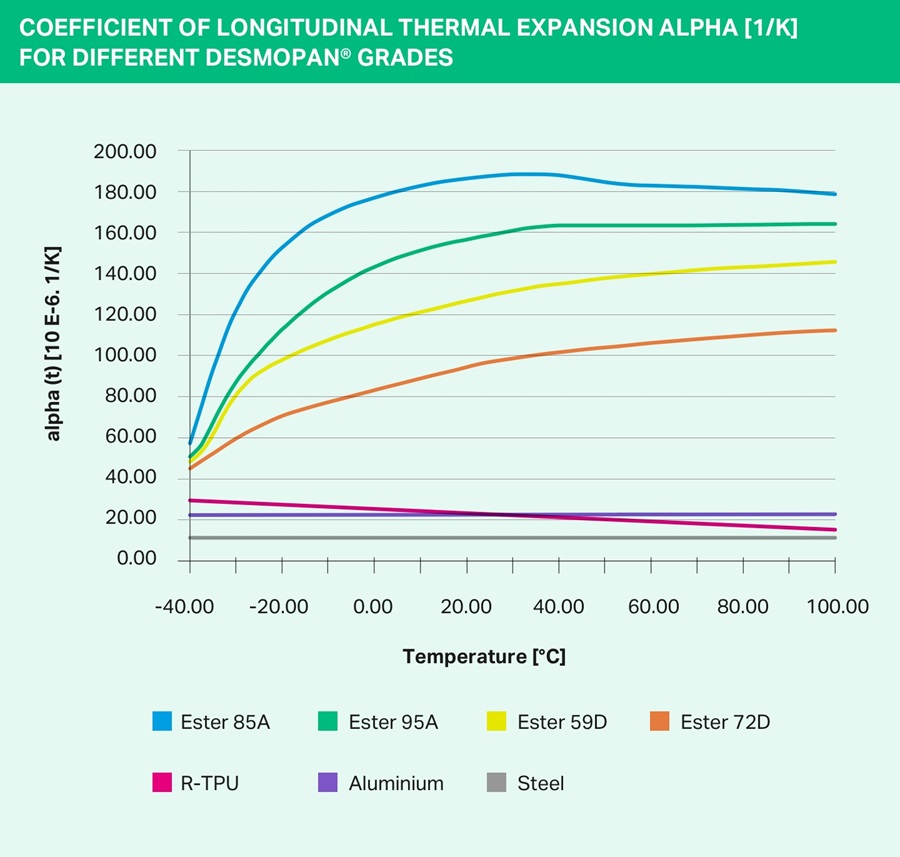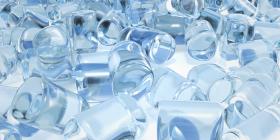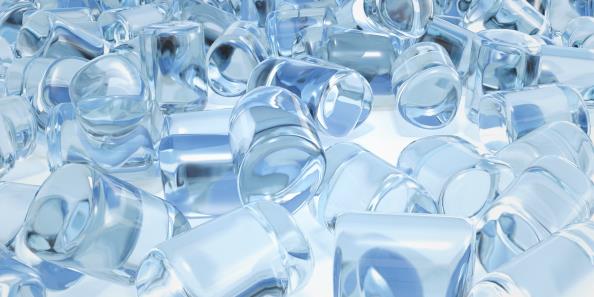
Technology
Thermal properties
Heat is an integral component of thermoplastic polyurethanes. A thermal analysis of TPU grades makes it possible to gauge their performance in individual applications.
Thermoplastic polyurethanes rely on heat as they acquire new forms during extrusion and injection molding processes. As versatile TPUs are heated and reheated, and sometimes combined with other materials to create high-performance composites with their own unique characteristics, a detailed assessment of the thermal properties of individual TPU grades is essential to predict their performance. Relevant thermal properties for TPU include thermal expansion, thermal conductivity, specific heat, combustion behavior (heating and calorific values), and heat distortion temperature. You can find a brief description of each of these values below along with relevant standards for testing.
Thermal expansion
Like all materials, Desmopan® expands with an increase in temperature and contracts again when the temperature falls. This behavior is expressed by the coefficient of linear thermal expansion, which is a function of the temperature at the time of measurement and the material’s Shore hardness. Glass-fiber-reinforced grades of Desmopan® are interesting in their thermal expansion behavior. Even with a glass fiber content of just 20%, the coefficient of thermal expansion is considerably reduced to a level similar to aluminum or steel, although the modulus of elasticity (Young’s modulus) does not increase beyond 2,000 MPa.

Thermal conductivity
Thermal conductivity is determined in line with DIN 52612. This measurement defines the quantity of heat passing through a given specimen thickness per unit of time. At 20 °C, Desmopan® has a thermal conductivity of 0.20 to 0.25 W/(K m). At 80 °C, its thermal conductivity falls to 0.17 to 0.20 W/(K m).
Specific heat
Specific heat is measured according to DIN 51005. This measurement expresses the amount of energy that is required to heat a specific mass of a material by 1 K. At 20 °C, Desmopan® has a specific heat of 1.45 to 1.70 J/g K. At 80 °C, this value increases to 1.70 to 1.90 J/g K.
Heating value from combustion
This value is calculated based on DIN 51900 and indicates the amount of energy released when one gram of the material undergoes combustion. A distinction is drawn between the heating value and the calorific value. Desmopan® has a heating value of between 25,000 and 28,000 J/g. Desmopan® has a calorific value of between 26,000 and 29,000 J/g.
Heat distortion temperature
In the case of rigid thermoplastics, the heat distortion temperature is frequently specified as the Vicat softening temperature (VST) in line with ISO 306 or the heat deflection temperature (HDT) in line with ISO 75. These measurement methods are not suitable for thermoplastic polyurethanes such as Desmopan®, since the measured values display a pronounced dependence on the Shore hardness and therefore have no informational value.



















